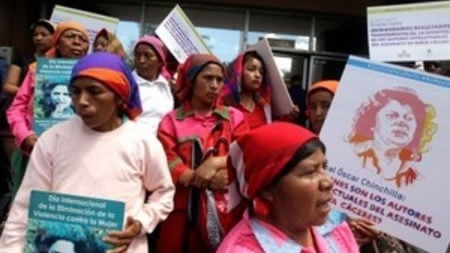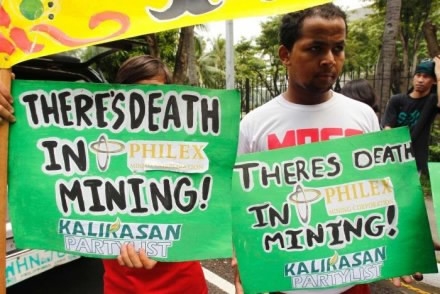
Tech & Sci
13:55, 12-Mar-2018
UN launches initiative to protect environmental defenders
Alok Gupta

Concerned over the rising number of crimes committed against environmental defenders, the United Nations has launched an Environmental Rights Initiative (ERI) to curb such atrocities.
According to a Global Witness report almost four environmental defenders are being killed every week. Researchers claimed, the number may be higher as data for such violation is hard to be collected.
Worst enough, around 40 to 50 percent of the 197 environmental defenders killed in 2017 came from indigenous and local communities.
Data revealed, since the 1970s, environmental rights have grown more rapidly than any other human right. From 2002 to 2013, more than 908 people were killed in 35 countries defending the environment and land.
Researchers found after mining and agribusiness, protecting national parks continues to be one of the world’s most dangerous jobs, with 21 recorded deaths linked to poaching last year.
“Violations of environmental rights have a profound impact on a wide variety of human rights, including the rights to life, self-determination, food, water, health, sanitation, housing, cultural, civil and political rights,” UN High Commissioner for Human Rights Zeid Ra’ad Al Hussein said.
Conflicts related to mining for construction material led to 36 killings last year. Recalling his visit to Papua New Guinea and Fiji, Hussein said, “I was made keenly aware of the impact of extractive industries and climate change on individual rights.”

Activists against large-scale mining display placards during a protest in Manila. The mining sector accounts for one of the Philippines major exports. /Reuters Photo
Activists against large-scale mining display placards during a protest in Manila. The mining sector accounts for one of the Philippines major exports. /Reuters Photo
The report also found Latin America remained at the top of the scale for global killings of land and environment defenders in 2017. Apart from murders, environment activists and defenders also face threats, intimidation and harassment on a regular basis.
Creating an alliance between the government, judiciary and private sector to protect environment rights
The initiative will focus on scaling-up the training of judges, prosecutors, and police in environmental law. Plans are also afoot for broader dissemination of information about environmental rights through a new web portal.
For the first time, UNEP has also urged the private sector to move beyond “compliance culture” to one where the business community champions the rights of everyone to a clean and healthy environment.
The ERI launched during the ongoing 37th session of the UN Human Rights Council at Geneva, intends to establish networks through which environmental defenders will connect, develop and implement strategies to promote environmental protection.
“Initiative will bring environmental protection nearer to the people,” UNEP maintained in a press statement.
Erik Solheim, head of UNEP, pointed out, those who struggle to protect the planet and people should be celebrated as heroes, but the sad fact is that many are paying a hefty price with their safety and sometimes their lives.
“It’s our duty to stand on the side of those who are on the right side of history. It means standing for the most fundamental and universal of human rights.”
Countries are cracking down on non-profits adding to environmental rights violations
UN maintained apart from killings and threats towards environmental defenders, an attempt by a few nations to restrict non-profits activities had aggravated human right violations.
Between 1993 and 2016, 48 countries enacted laws banning the foreign funding and operations of local non-profits, and around 63 countries restricting activities of international NGOs.
The UN’s initiative is engaging governments to strengthen institutional capacities to develop and implement policies and legal frameworks to counter policies calling for strict stand on non-profits.
“I hope this new Environment Rights Initiative will be able to encourage States and businesses to comply with these obligations,” Hussein added.

SITEMAP
Copyright © 2018 CGTN. Beijing ICP prepared NO.16065310-3
Copyright © 2018 CGTN. Beijing ICP prepared NO.16065310-3